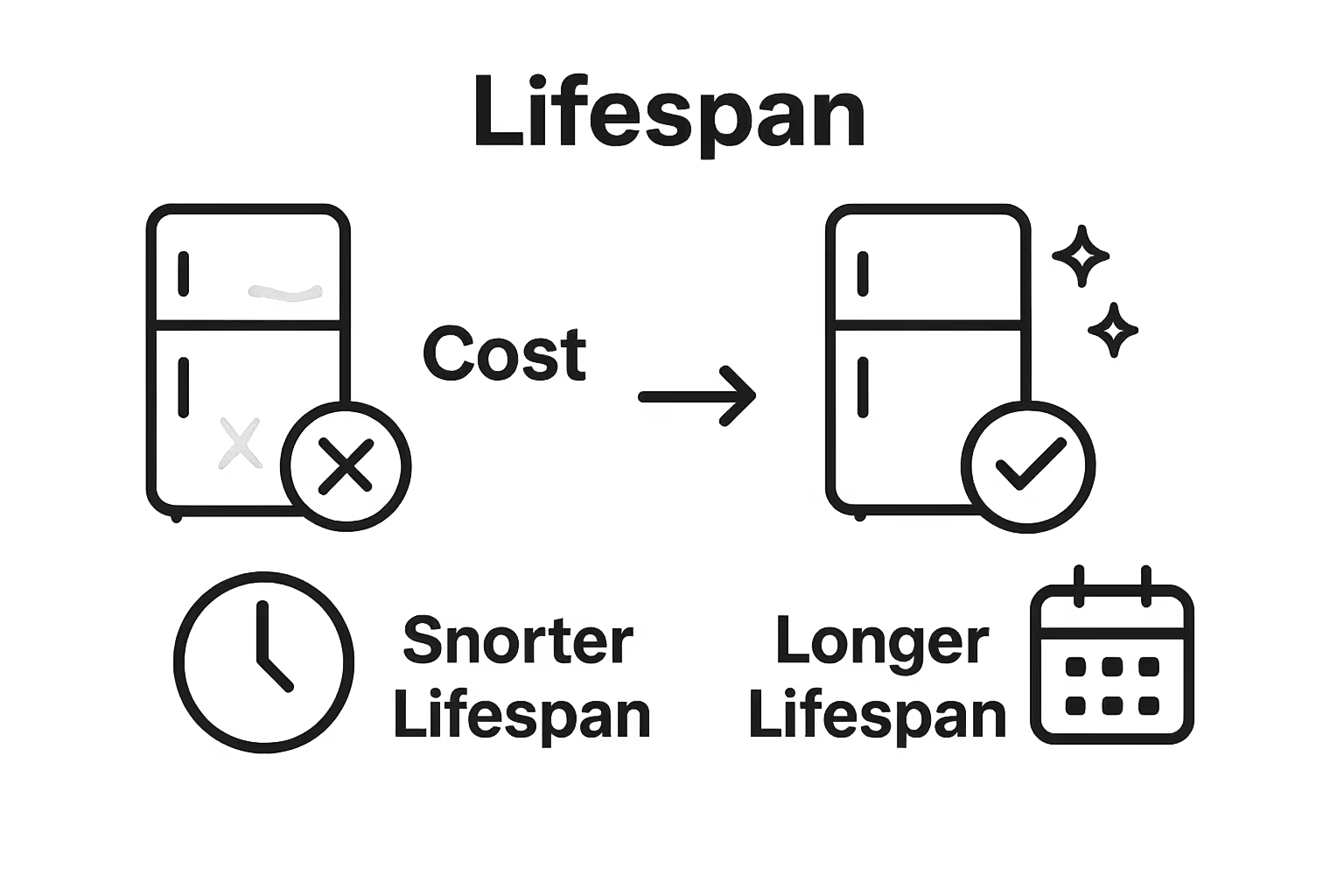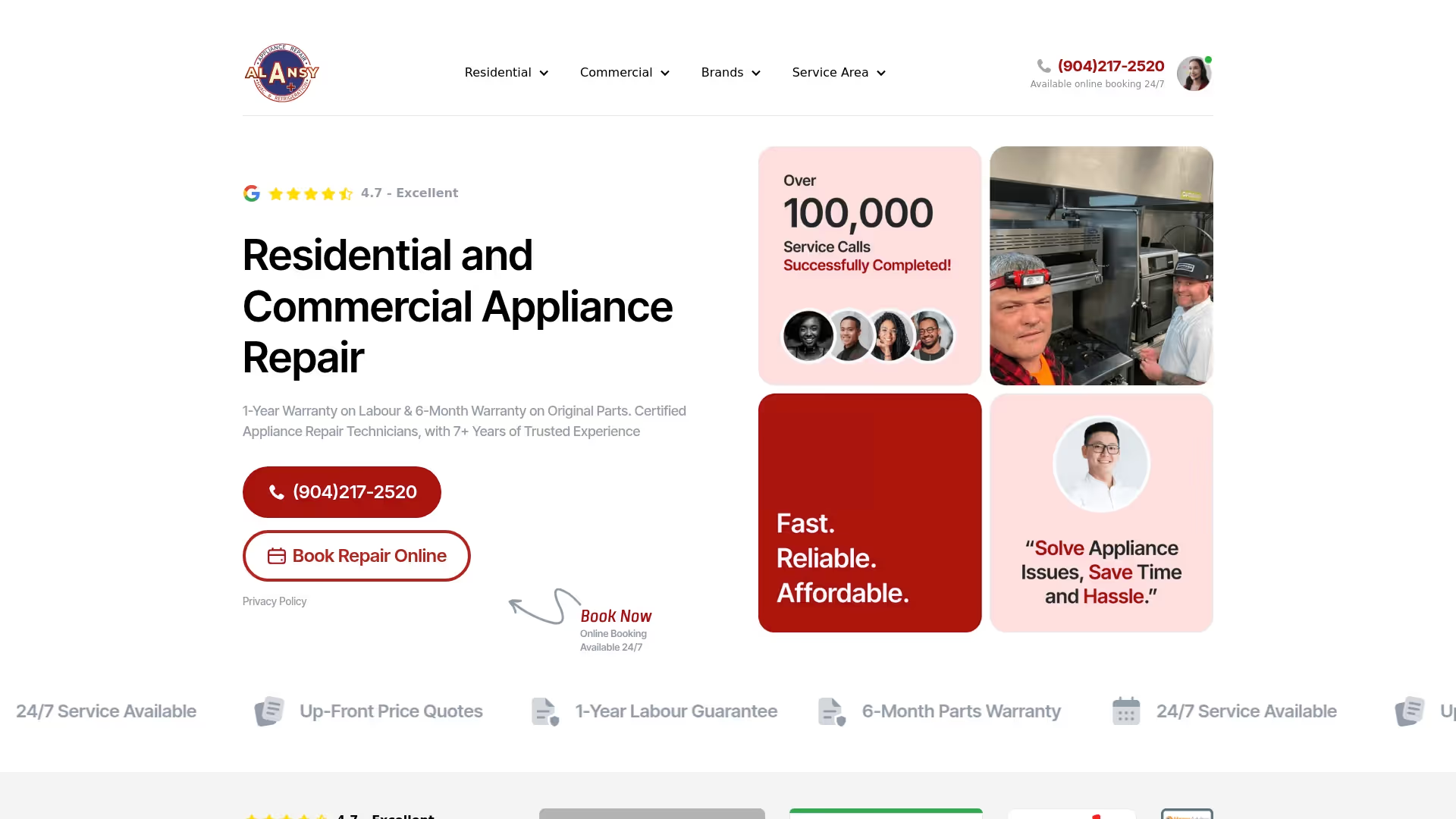Understanding Appliance Upkeep Guide 2025 for Households
What is Appliance Upkeep and Why is it Important?
Appliance upkeep represents a systematic approach to maintaining household equipment and machinery to ensure optimal performance, energy efficiency, and longevity. Unlike simple repairs, this comprehensive process involves regular monitoring, cleaning, inspection, and proactive maintenance of appliances before critical failures occur.
Understanding the Core Concept
At its fundamental level, appliance upkeep goes beyond reactive problem solving. It is a strategic method of preserving the functionality and performance of household devices through consistent and deliberate maintenance practices. This approach helps homeowners prevent unexpected breakdowns, reduce repair costs, and extend the operational lifespan of their valuable equipment.
Learn more about expert maintenance strategies for commercial kitchen equipment that can be adapted to residential settings.
Key benefits of comprehensive appliance upkeep include:
- Preventing unexpected equipment failures
- Reducing long-term repair and replacement expenses
- Maintaining optimal energy efficiency
- Ensuring consistent appliance performance
Importance in Modern Households
In 2025, appliance upkeep has become increasingly critical due to rising equipment complexity and energy costs. According to the U.S. Environmental Protection Agency, proper maintenance can significantly reduce utility expenses and minimize environmental impact. Modern appliances represent substantial household investments, making systematic upkeep not just a recommendation but a financial and operational necessity.
Homeowners who implement structured appliance maintenance strategies can expect to save money, reduce energy consumption, and maintain a more reliable home environment. The minimal time and resources invested in regular upkeep generate substantial long-term benefits, transforming maintenance from a reactive chore into a proactive management approach.
The Key Concepts of Appliance Maintenance
Appliance maintenance involves a comprehensive approach to preserving the functionality, efficiency, and longevity of household equipment. This process encompasses multiple strategic elements that work together to ensure optimal performance and prevent potential failures.
Preventative Maintenance Strategies
Preventative maintenance represents the cornerstone of effective appliance care. This approach focuses on proactively identifying and addressing potential issues before they escalate into significant problems. By implementing regular inspection and maintenance routines, homeowners can significantly reduce the likelihood of unexpected breakdowns and expensive repairs.
Explore our comprehensive guide to commercial refrigeration maintenance for insights applicable to household appliance care.
Key preventative maintenance strategies include:
- Regular cleaning of appliance components
- Checking and replacing worn seals and gaskets
- Monitoring electrical connections and power supplies
- Lubricating moving parts as recommended by manufacturers
Diagnostic and Performance Assessment
Effective appliance maintenance goes beyond simple cleaning and basic checks. According to Georgetown University’s Office of Environmental Health & Safety, comprehensive diagnostic assessments are crucial for identifying potential safety risks and performance issues. This involves systematic evaluation of an appliance’s operational parameters, including energy consumption, mechanical functionality, and potential wear indicators.
Homeowners should develop a structured approach to monitoring their appliances, which includes tracking performance metrics, understanding manufacturer recommendations, and recognizing early warning signs of potential malfunctions. By implementing a data-driven maintenance strategy, individuals can optimize their appliances’ performance, extend their operational lifespan, and minimize unexpected repair costs.

How Appliance Longevity Affects Your Budget
Appliance longevity represents a critical financial consideration for households, extending far beyond the initial purchase price. Understanding how the lifespan of household equipment impacts long-term expenses can help homeowners make more strategic financial decisions and optimize their household budget.
The True Cost of Appliance Ownership
The financial implications of appliance longevity are multifaceted and complex.
This table outlines the main financial factors to consider when evaluating the true cost of owning and maintaining household appliances over their lifetime.
Financial FactorDescriptionInitial purchase priceUpfront cost to acquire the applianceAnnual energy consumption costsYearly expenses related to appliance energy useMaintenance and repair expensesCosts for upkeep, diagnostics, and occasional repairsPotential replacement timelinesWhen the appliance may need to be replacedEfficiency degradation over timeLoss of performance and higher costs as the appliance agesModern appliances are significant investments that require careful economic analysis, considering not just the upfront cost but the total lifecycle expenses. This includes purchase price, energy consumption, maintenance costs, and potential replacement expenses.

Read our comprehensive guide on commercial refrigeration maintenance to understand long-term equipment management strategies.
Key financial factors affecting appliance ownership include:
- Initial purchase price
- Annual energy consumption costs
- Maintenance and repair expenses
- Potential replacement timelines
- Efficiency degradation over time
Economic Impact of Extended Appliance Lifespan
According to the U.S. Department of Energy, strategic maintenance can significantly extend an appliance’s operational life, directly translating to substantial financial savings. A refrigerator that typically lasts 12 years can potentially operate efficiently for 15-18 years with proper care, representing thousands of dollars in avoided replacement costs.
Homeowners who invest in preventative maintenance and understand the economic dynamics of appliance longevity can make more informed purchasing decisions. By prioritizing quality, efficiency, and systematic maintenance, individuals can transform household equipment from a recurring expense into a long-term, value-generating asset that supports both financial stability and household functionality.
Understanding Common Appliance Issues and Solutions
Modern households rely on a complex network of appliances that can experience various performance challenges. Understanding these common issues and their potential solutions empowers homeowners to address problems efficiently and minimize potential long-term damage or costly replacements.
Identifying Recurring Performance Problems
Appliance issues typically manifest through specific symptoms that indicate underlying mechanical or electrical complications. Recognizing these early warning signs is crucial for preventing more extensive damage. Performance problems can range from minor operational inefficiencies to significant functional breakdowns that compromise the entire appliance’s functionality.
Below is a table summarizing common appliance performance problems alongside their possible underlying causes, helping homeowners quickly identify and address routine issues.
Performance ProblemPossible CauseUnusual noises during operationWorn components or loose partsInconsistent temperature regulationFaulty thermostat or sensorsIncreased energy consumptionPoor maintenance or aging partsReduced operational efficiencyClogged filters, worn sealsIntermittent functionalityElectrical or control issues
Explore our expert troubleshooting guide for cafe dishwashers to understand diagnostic techniques for specific appliance models.
Common performance indicators that signal potential issues include:
- Unusual noises during operation
- Inconsistent temperature regulation
- Increased energy consumption
- Reduced operational efficiency
- Intermittent functionality
Diagnostic and Resolution Strategies
According to the U.S. Fire Administration, many appliance issues can be preemptively addressed through systematic monitoring and proactive maintenance. Professional diagnostic assessments help identify potential electrical or mechanical vulnerabilities before they escalate into more significant problems.
Homeowners should develop a comprehensive approach to appliance management, which includes understanding manufacturer guidelines, performing regular self-inspections, and recognizing when professional intervention becomes necessary. By adopting a proactive mindset toward appliance maintenance, individuals can extend equipment lifespan, ensure optimal performance, and mitigate potential safety risks associated with malfunctioning household devices.
The Future of Appliance Upkeep Practices in 2025
The landscape of appliance maintenance is rapidly evolving, driven by technological advancements, sustainability concerns, and changing consumer expectations. As we enter 2025, households are witnessing a transformative approach to equipment management that prioritizes intelligent, proactive, and data-driven maintenance strategies.
Technological Integration in Maintenance
Smart technologies are revolutionizing how homeowners interact with and maintain their household appliances. Modern equipment increasingly incorporates advanced sensors, connectivity features, and diagnostic capabilities that enable real-time performance monitoring and predictive maintenance. This technological integration allows for more precise, efficient, and proactive equipment management.
Discover expert insights from professional appliance repair technicians to understand emerging maintenance trends.
Key technological innovations in appliance upkeep include:
- Internet of Things (IoT) enabled diagnostics
- Artificial intelligence-powered performance prediction
- Remote monitoring and control systems
- Automated maintenance scheduling
- Self-diagnostic capabilities
Sustainability and Efficiency Paradigms
According to Research from the U.S. Department of Energy, the future of appliance maintenance is intrinsically linked to environmental sustainability and energy efficiency. Emerging maintenance practices focus not just on repairing equipment, but on optimizing its operational efficiency, reducing energy consumption, and extending the overall lifecycle of household appliances.
Homeowners in 2025 are increasingly adopting holistic maintenance approaches that balance technological convenience, environmental responsibility, and economic considerations. By embracing intelligent maintenance strategies, individuals can transform appliance upkeep from a reactive chore into a proactive, data-driven process that supports both household functionality and broader sustainability goals.
Protect Your Household Investments with Proactive Appliance Care
Do you want to avoid costly surprises and keep your appliances running smoothly all year? The 2025 Appliance Upkeep Guide highlights a major pain point: busy households often miss small maintenance issues that later result in expensive repairs or early replacement. With budgets tighter and appliances more complex, preventive and data-driven care is no longer a luxury—it’s essential. At Alan’s Appliance Repair, we know firsthand how consistent appliance upkeep cuts long-term costs and boosts energy efficiency for families just like yours.

Turn your maintenance worries into peace of mind. Our experts bring practical diagnostic skills and hands-on experience to each service call, helping you catch problems before they escalate. Visit our main website to see how we support both residential and commercial appliance repair needs. For even more tailored tips on smarter upkeep and repair, check out our Appliance Repair Technician Blog. Do not wait for a breakdown—act now to protect your investment and enjoy reliable appliances in every season.
Frequently Asked Questions
What is appliance upkeep and why is it important?
Appliance upkeep is a systematic approach to maintaining household equipment to ensure optimal performance and longevity. It involves regular monitoring, cleaning, inspection, and proactive maintenance to prevent unexpected breakdowns and reduce repair costs.
What are the key benefits of regular appliance maintenance?
Key benefits of regular appliance maintenance include preventing unexpected equipment failures, reducing long-term repair and replacement expenses, maintaining optimal energy efficiency, and ensuring consistent appliance performance.
How can I implement preventative maintenance strategies for my appliances?
You can implement preventative maintenance strategies by regularly cleaning appliance components, checking and replacing worn seals, monitoring electrical connections, and lubricating moving parts as recommended by manufacturers.
How does appliance longevity affect household budgets?
Appliance longevity affects household budgets by increasing the total lifecycle expenses related to energy consumption, maintenance, and potential replacement costs. Investing in preventative maintenance can significantly extend an appliance’s lifespan, leading to substantial financial savings over time.


